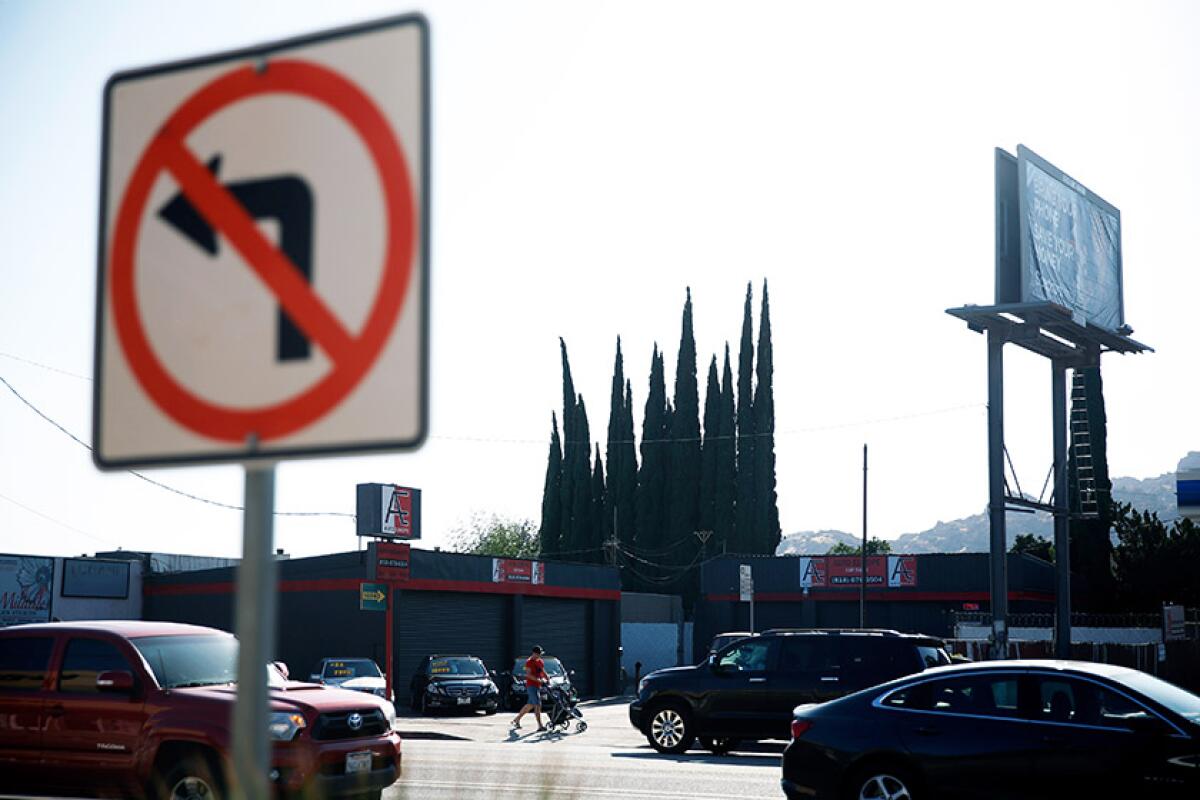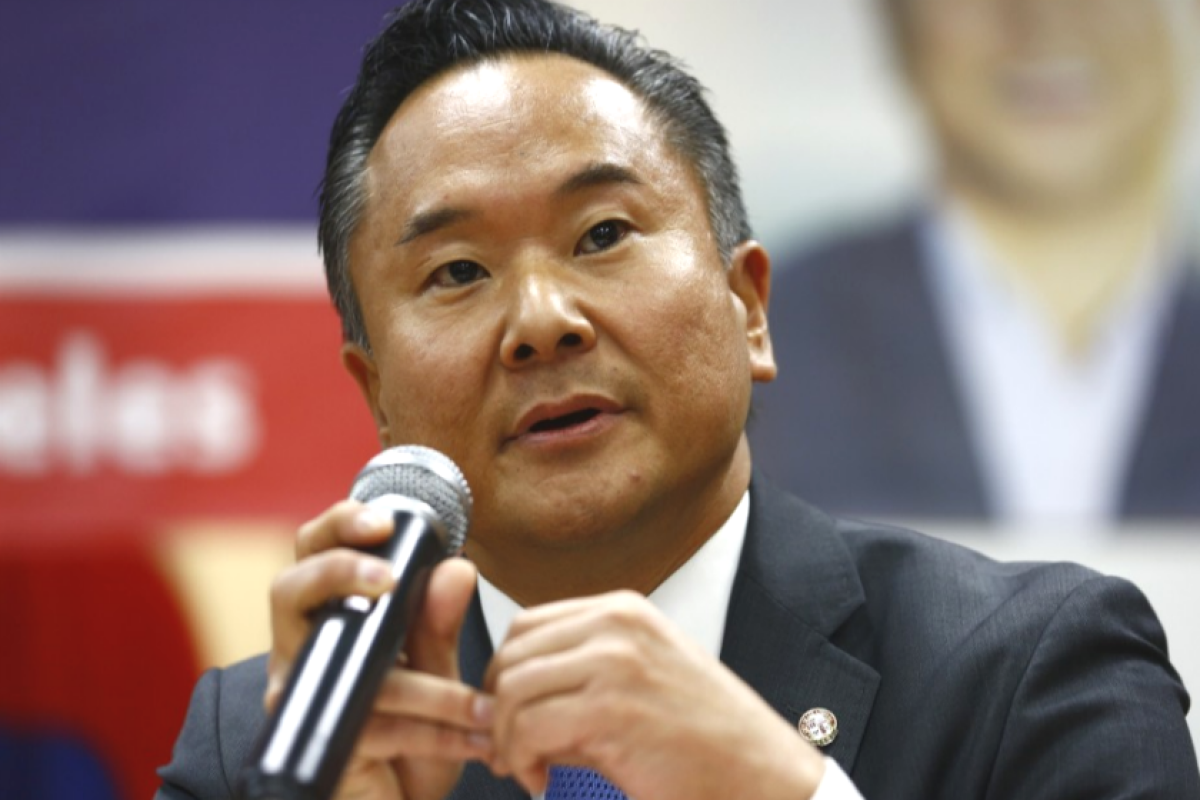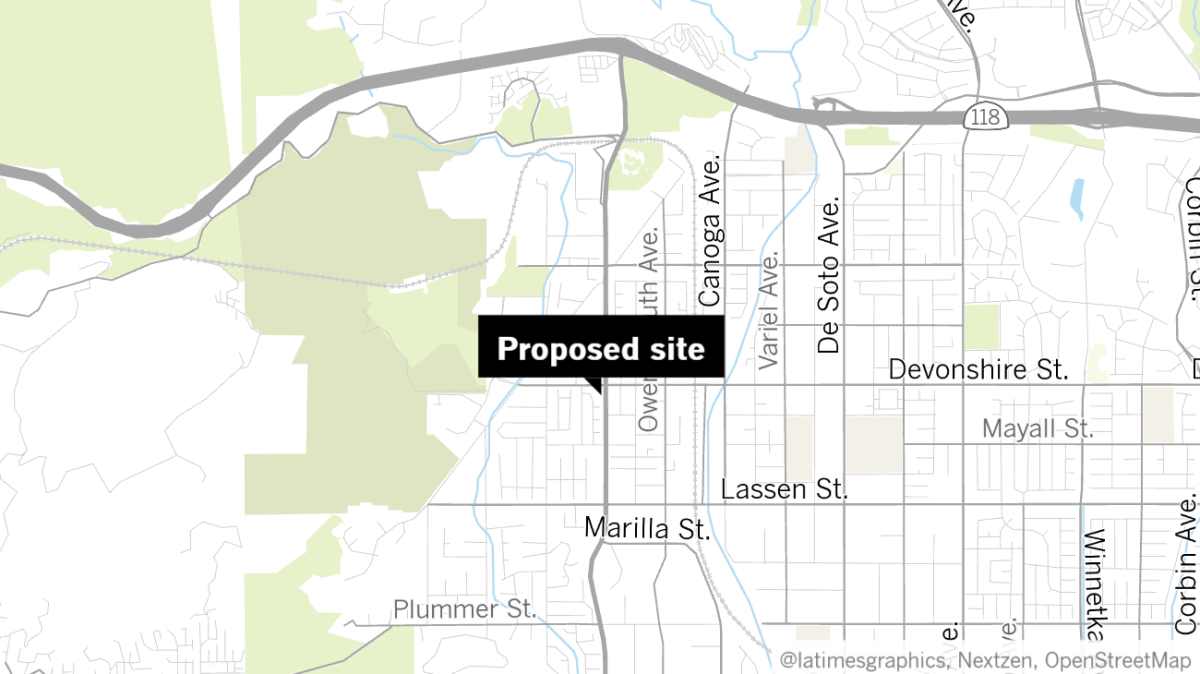This Valley district got a rare pitch to build homeless housing. Can it survive opposition?

No new apartments for homeless people have been built in the northwestern San Fernando Valley, even with more than a billion dollars approved by taxpayers for new housing flowing to the city of Los Angeles.
Former Councilman Mitchell Englander, who previously represented the district, said the reason was simple: No one was trying to build such housing here, in neighborhoods such as Chatsworth, Granada Hills and Porter Ranch.
Now newly elected councilman John Lee is faced with a rare proposal to build homeless housing using Proposition HHH dollars — the first in this district to head to members of the City Council for approval. And he has come out against it, saying he opposes the plan as now proposed.

The debate over the Topanga Apartments — a proposed 64-unit complex that would replace an auto sales lot in Chatsworth — follows a closely watched campaign that revolved, in part, around warring views of the homeless crisis.
It is also a test case for how L.A. politicians will weigh in on such projects after the city eliminated a disputed requirement that homeless advocates had denounced as a “pocket veto.”
In the past, a council member could block funding for homeless housing by refusing to turn over a required “letter of acknowledgment” — a maneuver that might never become public. This time, Lee would have to persuade fellow council members to join him in opposing the Chatsworth project, in the face of sharp criticism from homeless advocates.
Pulling the project after it has already been vetted by city staff and oversight committees “would be highly suspect and cause for further legal scrutiny,” attorney Faizah Malik of the group Public Counsel warned in a letter, pointing to the high scores awarded by city staffers evaluating the Chatsworth project.
The decision heads Wednesday to a council committee. Lee, who does not sit on that committee, said he will ask members to hold off on approving the project “so that both my office and the developer have time to reach out to the community.”
L.A. council members tend to defer to the politician who represents the area where a new development is proposed, which could help Lee win the needed votes.
But council members also pledged last year to back at least 222 new units of homeless housing in each of their districts — and some have groused about uneven progress toward that goal.
Lee said at an August forum that he was “absolutely” committed to the 222 target. But that goal, he said, should be accomplished by working with residents. The Chatsworth Neighborhood Council recently came out against the proposed location, which its president, Jeff Hammond, said was too close to an elementary school around the corner.
“That location is not suitable for a facility with that purpose,” Hammond said in an email, adding that the proposed building would be too tall for the area, worsen neighborhood parking, and affect the privacy of nearby homes. “Chatsworth has other locations that would work very well.”

Mabel Sasso, who lives on a cul-de-sac near the proposed site on Topanga Canyon Boulevard, said she feels for homeless people and would support a project with lower height.
“It’s nothing personal against the people” who might live there, Sasso said in Spanish. “But seven stories? In the middle of all these low buildings?”
Project officials said they had envisioned a six-story building but were willing to reduce the height based on community concerns.
Even before the neighborhood council had weighed in, Lee said in a statement that residents had made it clear that the project was “physically out of scale with the surrounding neighborhood and was pushed forward without adequate outreach to the businesses and families that will be most affected.”
Staffers for Lee said that as an alternative, he was looking into another property owned by the county, but declined to share more details before he had determined if it was feasible.
“I recognize the need for permanent supportive housing and I have pledged to bring units to the district, but I will not allow that need to negate the needs of the community as a whole,” Lee said in a statement.
James Silverwood, president of developer Affirmed Housing Group, said his company recently reached out to the neighborhood council to explain its plans but had yet to launch any broader outreach. His firm regularly hears concerns about buildings being out-of-scale and frequently finds them to be “just a smokescreen for a NIMBY position,” he said.
Before Lee took office, Silverwood said, the housing developer met with staffers for interim Councilman Greig Smith who suggested other sites that were not workable. After Lee came out against the project in the Daily News, Silverwood said they met with the new councilman, suggesting they could rework the building design or change which group it served.
“He rejected both offers,” Silverwood said.
Lee said in an email that he had not received any “concrete changes” to consider.
Much of the remaining money from Proposition HHH, the $1.2-billion bond measure approved by voters, will be committed when council members approve the latest round of projects, which currently includes the Topanga Apartments. Silverwood said that if the council turns the Chatsworth project down for HHH funding, they will not move forward with the project.
Chatsworth resident Ankur Patel argued that turning down the proposal would be “a missed opportunity.”
“We can tailor this project to the community,” Patel argued, stressing that Chatsworth taxpayers are already paying for homeless housing. “If this is going to be the one project we have a shot at, let’s do it right.”
Fewer people are homeless here than any other L.A. district, according to the latest tally, but tents, RVs and bedrolls are still a familiar sight in industrial stretches of Chatsworth. Outside a self-storage facility on Jordan Avenue, Leo Bunch said he was unsure where he would sleep after his motor home had been towed that morning.
It was his birthday — a fact he didn’t realize until a reporter asked him how old he was.
“Just one slug at the kneecaps after the next,” Bunch said, recounting his string of misfortunes: Crohn’s disease, a stroke years earlier, painful swelling around his ankles that made it hard for him to trek to the Social Security office.
During the recent campaign, Lee declared that he would provide a different take on homelessness at City Hall, stating that the problem was not only a housing crisis, but also a “drug crisis” and “mental illness crisis.” His political allies attacked his rival, Loraine Lundquist, by arguing she would allow “massive housing projects opposed by local residents.”
Lundquist, who announced Tuesday that she will challenge Lee for the seat again in March, said she is watching to see how Lee will follow through on his promise to provide homeless housing in the district.
More to Read
Sign up for Essential California
The most important California stories and recommendations in your inbox every morning.
You may occasionally receive promotional content from the Los Angeles Times.











